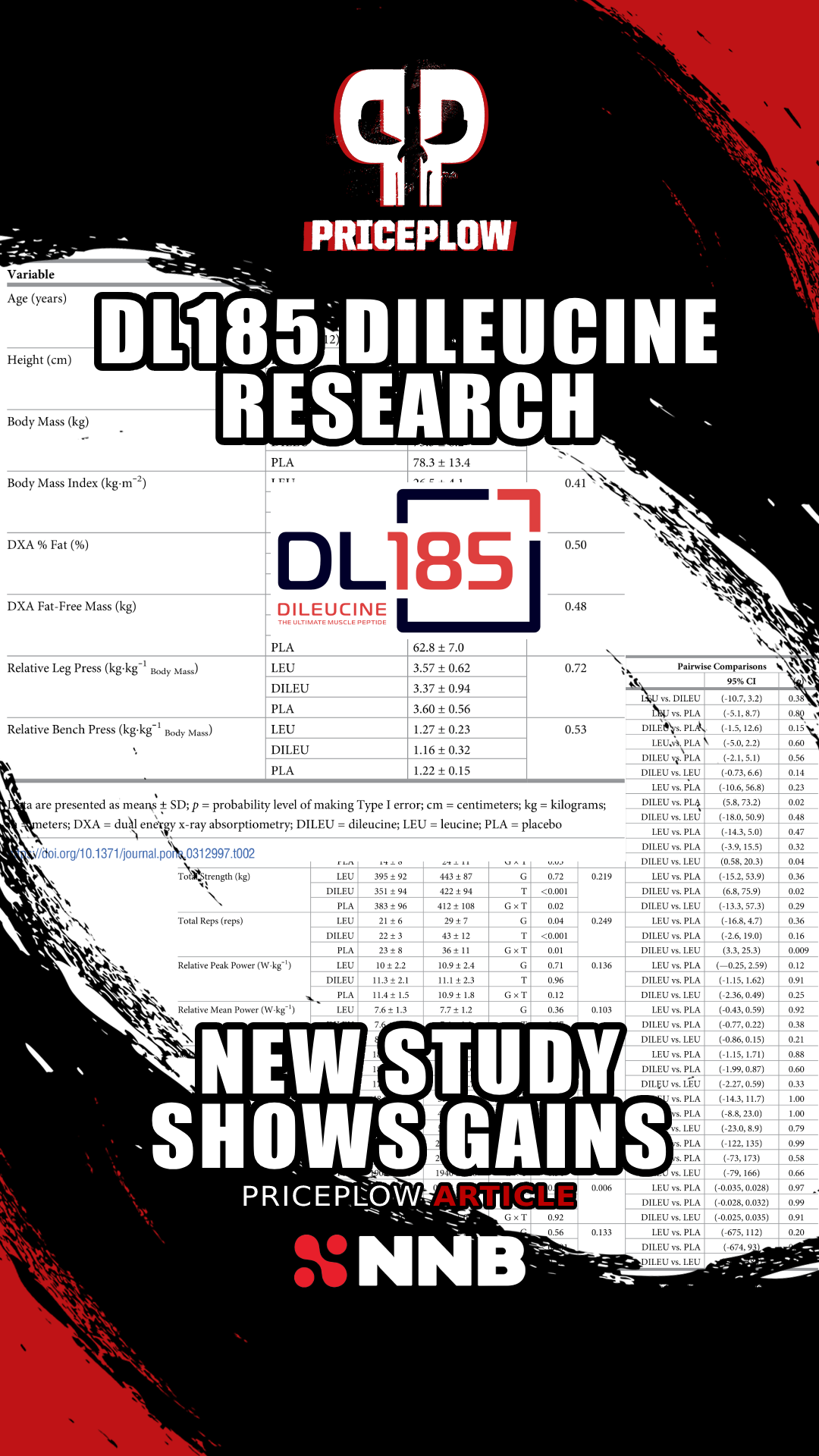
Groundbreaking research published in PLOS ONE demonstrates NNB Nutrition's DL185 dileucine boosts lower body strength more effectively than leucine. 2g daily improved leg press strength and muscular endurance in 10-week study. Science continues supporting this novel ingredient.
The supplement industry often faces criticism for relying on preliminary or unpublished research. However, that's changing with ingredients like NNB Nutrition's DL185 dileucine, which continues to build its scientific foundation through peer-reviewed research. In an exciting development for 2024, research has now been published in the prestigious journal PLOS ONE,[1] expanding on what was previously presented at the 2023 International Society of Sports Nutrition (ISSN) conference.[2]
This publication marks a significant milestone for DL185, validating earlier findings that demonstrated its superior effects compared to standard leucine supplementation. The research adds to a growing body of evidence supporting dileucine's role in enhancing muscle strength and performance, recently discussed in detail on the PricePlow Podcast with Dr. Chad Kerksick, who helped conduct the research.
New Dileucine Research: 2g Daily Leads to Greater Lower Body Strength Increases
The newly-published study provides compelling evidence that 2 grams of dileucine supplementation can lead to greater increases in lower body strength compared to placebo, while standard leucine supplementation showed no significant benefits. These findings align with previous research showing dileucine's enhanced absorption and protein synthesis capabilities.[3]
Let's examine the details of this groundbreaking research and understand why it matters for athletes, bodybuilders, and anyone interested in improving their training outcomes. But first, sign up for PricePlow's news alerts on NNB Nutrition and DL185 so you don't miss further developments:
Subscribe to PricePlow's Newsletter and Alerts on These Topics
The New Research: Hagele et al. 2024
The groundbreaking research, published in PLOS ONE, represents the first randomized, double-blind, placebo-controlled trial examining dileucine's effects on resistance training adaptations.[1]
-
Study Design
The researchers employed a robust experimental design that spanned 10 weeks. They divided participants into three groups:[1]
- Dileucine group: 2g DL185 dileucine monohydrate (RAMPS™)
- Leucine group: 2g leucine
- Placebo group: 2g resistant starch
This three-way comparison allowed researchers to determine not only if dileucine was effective, but also how it compared to traditional leucine supplementation. The double-blind nature of the study meant neither the researchers nor participants knew which supplement they were receiving, eliminating potential bias.
-
Participant Characteristics
The study recruited 32 resistance-trained males with the following characteristics:[1]
Comprehensive comparison of participant demographics and initial performance metrics across dileucine, leucine, and placebo groups.[1]
- Average age: 28.4 ± 6.0 years
- Height: 69.4 ± 2.9 inches (roughly 5'8" to 5'10")
- Weight: 175.7 ± 27.6 pounds
- BMI: 25.7 ± 3.9 kg/m²
- Body fat percentage: 19.0 ± 5.7%
Importantly, all participants had prior resistance training experience, making the results more relevant to the typical supplement user. The researchers verified their training status by requiring specific strength benchmarks before enrollment.[1]
-
Training Protocol
The training program was meticulously designed to maximize results while ensuring consistency across all groups:[1]
Detailed training program showing upper and lower body split routine with progression from 3x10 to 4x6 repetitions over the study period.[1]
- 4 training sessions per week
- Split-body routine targeting all major muscle groups
- 3-4 sets per exercise
- 6-10 repetitions per set
- Intensity range: 70-85% of one-repetition maximum (1RM)
Participants followed this protocol for the entire 10-week study period, with researchers monitoring compliance throughout the program.
-
Key Findings
The results demonstrated several significant outcomes:
Comprehensive comparison of strength and performance measures showing superior improvements in the dileucine group for key lifts and repetition tests.[1]
-
Leg Press Strength
- The dileucine group showed significantly greater increases in leg press 1RM compared to placebo (p = 0.02)
- The difference was substantial, with a 95% confidence interval of 5.8 to 73.2 kg improvement
-
Muscular Endurance
- Dileucine supplementation led to greater improvements in leg press repetitions to failure compared to leucine (p = 0.04)
- The endurance improvements ranged from 0.58 to 20.3 additional repetitions
-
Total Strength
- The dileucine group demonstrated greater increases in total strength (combined leg press and bench press) compared to placebo (p = 0.02)
- The improvements showed a 95% confidence interval of 6.8 to 75.9 kg
-
Upper Body Performance
- While bench press strength and endurance improved across all groups, there were no significant differences between treatments
- This suggests dileucine's effects may be more pronounced in lower body training
Visualization of leg press strength improvements showing significantly greater gains in the dileucine group (p=0.02) compared to placebo and leucine.[1]
Graph demonstrating superior improvements in leg press endurance with dileucine supplementation versus leucine and placebo groups.[1]
-
-
Significance of Results
These findings are significant for several reasons:
-
Dileucine's First Published RCT on Resistance Training
This represents the first published randomized controlled trial examining dileucine's effects on resistance training adaptations, and the positive results validate previous preliminary research.
-
Superiority to Leucine
The study demonstrated that dileucine not only works, but outperforms traditional leucine supplementation. This is crucial since leucine has long been considered the gold standard for amino acid supplementation.
-
Practical Applications
The small 2-gram dosage proved effective, making it a practical serving size for real-world use. The improvements in both strength and endurance suggest broad applications for various training goals.
-
Safety Considerations
No adverse effects were reported throughout the 10-week trial. This helps establish the safety profile of dileucine supplementation at the studied dose.
The research team concluded that dileucine supplementation can enhance resistance training adaptations more effectively than either leucine or placebo, marking a significant advancement in sports nutrition research.[1]
-
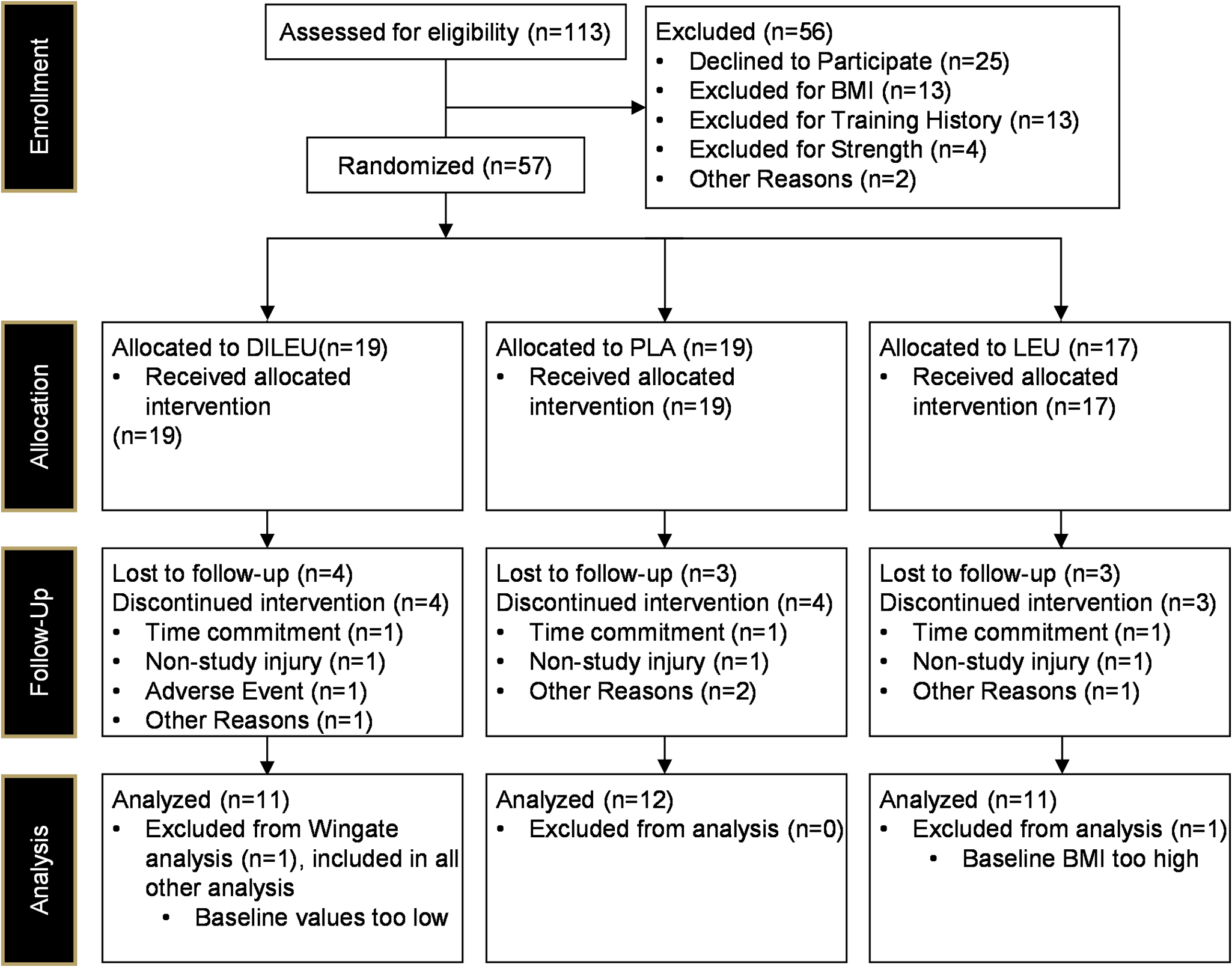
Participant recruitment, randomization, and retention flowchart showing the progression from 113 assessed participants to final analysis groups.[1]

Detailed breakdown of energy and macronutrient intake showing consistent nutrition patterns throughout the 10-week intervention.[1]
Mechanisms of Action: Understanding How Dileucine Works
The story of dileucine's effectiveness begins with how our bodies process and use amino acids. While leucine alone has long been considered the key amino acid for muscle growth, research shows that dileucine - a specialized peptide made of two leucine molecules bonded together - offers distinct advantages.[3]
-
Enhanced Absorption Through Peptide Transport
NNB Nutrition shined at SupplySide West 2024 with innovations like XPO NRG, GeniusPure, and SweetVantage, setting new standards in nutrition -- with much more to come!
A crucial difference between dileucine and regular leucine lies in how they enter our bloodstream. When we consume protein, our bodies often convert single amino acids into peptides before absorption. This isn't just a random process - our bodies go out of their way to create these peptides, suggesting there's an important biological reason for doing so.[4] This was actually discussed at the end of our Podcast with Dr. Ralf Jaeger in Episode #078, who was teasing DL185 before it even came out!
Dileucine takes advantage of a specialized transport system in our intestines called the PepT1 transporter. This system allows dileucine to be absorbed more efficiently than single leucine molecules. Research shows that dileucine absorption can be up to 185% faster than conventional leucine,[3] hence the ingredient's name.
-
Superior Muscle Protein Synthesis Activation
Once in the bloodstream, dileucine demonstrates several advantages over regular leucine:
- Higher Blood Levels: Research shows that using dileucine leads to greater total leucine availability in the blood compared to taking the same amount of free leucine![3]
- Improved Muscle Uptake: The peptide structure of dileucine appears to enhance its delivery to muscle tissue. Studies demonstrate that dileucine supplementation results in higher intramuscular leucine concentrations compared to free leucine supplementation.[3]
- Enhanced mTOR Activation: Both leucine and dileucine activate the mTOR pathway - the cellular signaling system that triggers muscle protein synthesis. However, dileucine appears to create a more potent anabolic response, as evidenced by greater increases in muscle protein synthesis rates.[3]
-
Beyond Traditional Leucine Limitations
Traditional leucine supplementation faces several limitations that dileucine helps overcome:
DL185 Dileucine by NNB Nutrition is a groundbreaking pro-anabolic and anti-catabolic agent, perfect for anti-aging and longevity. With superior absorption and muscle protein synthesis, it offers better muscle protection, making it a key ingredient in future supplement offerings.
- Absorption Ceiling: Free leucine absorption can become saturated, limiting its effectiveness at higher doses. Dileucine's distinct absorption pathway helps bypass this limitation.[3]
- Sustained Availability: The peptide structure of dileucine may lead to more sustained amino acid availability, potentially extending the anabolic window compared to free leucine.[3]
- Lower Effective Dose: The enhanced absorption and utilization of dileucine means that lower doses can achieve significant effects. The recent Hagele study demonstrated meaningful benefits with just 2 grams of dileucine.[1-3]
This superior absorption and utilization helps explain why the Hagele study found significant improvements in strength and performance with dileucine supplementation, while the same amount of free leucine showed no significant benefits compared to placebo.[1]
Real-World Applications: Using DL185 Dileucine Effectively
So where does this leave savvy supplement users and formulators? With a bit more info:
-
Optimal Dosing Strategy
The research demonstrates that 2 grams of dileucine per day can deliver significant benefits.[1-3] This relatively small dose makes supplementation practical for most users. While higher doses haven't been studied extensively, the current research suggests that 2 grams is sufficient to trigger meaningful improvements in strength and performance.
Notably, this 2-gram dose of dileucine proved more effective than an equivalent amount of leucine, suggesting that users may not need to consume large quantities to see results. This efficiency in dosing aligns with dileucine's enhanced absorption properties.[3]
-
Timing Considerations
Research suggests several optimal times for dileucine supplementation:
- Post-Workout: The most obvious timing is immediately after training, when your body is primed for nutrient uptake and muscle protein synthesis is elevated.
- Morning (Non-Training Days): On rest days, taking dileucine with your first meal can help maintain an anabolic environment throughout the day. The Hagele study used this approach successfully for non-training days.
- With Protein Meals: While not directly studied, dileucine's ability to enhance leucine uptake suggests it could be beneficial when taken alongside protein-rich meals to maximize their anabolic potential.
-
Who Should Consider Dileucine?
Several populations may benefit from dileucine supplementation:
- Resistance-Trained Athletes: The most direct application comes from the Hagele study, which showed clear benefits for resistance-trained individuals looking to improve strength and performance.
- Aging Population: While not yet studied directly, dileucine's enhanced absorption properties could make it valuable for older adults who often experience decreased protein utilization efficiency. We covered this idea in our article on dileucine for anti-aging applications.
- Recovery-Focused Athletes: Athletes in high-volume training programs may benefit from dileucine's ability to stimulate muscle protein synthesis more effectively than traditional leucine supplementation.
- Protein-Restricted Individuals: People who struggle to consume adequate protein might benefit from dileucine's efficient delivery system and enhanced anabolic properties. This also goes with our anti-aging strategy, since elderly users often don't consume enough protein.
A Vegan-Friendly Solution
Chad Kerksick finishes his 2-part podcast series on the PricePlow Podcast in Episode #142 to discuss his research done on NNB Nutrition ingredients like DL185 dileucine and GlucoVantage dihydroberberine. We also talk study design and targeting new research areas like GLP-1.
While not the most cost-effective solution, DL185 targets advanced consumers and brands wanting the ultimate in anabolic signaling. Dileucine's higher price reflects the specialized enzymatic process used to bond two fermented leucine molecules. Its vegan-friendly, dipeptide profile further adds premium positioning in the marketplace.
-
Stacking Considerations
Dileucine can be effectively combined with other supplements:
- Creatine monohydrate for additional strength and power benefits
- Essential amino acids to support overall protein synthesis
- Pre-workout supplements for enhanced training performance
- Post-workout recovery formulas to maximize anabolic response
- MitoPrime L-Ergothioneine for anti-aging applications
Remember that while the current research is promising, it's still evolving. Future studies may reveal additional applications and optimal usage strategies for different populations.
Conclusion: The Science Behind DL185 Dileucine Grows Stronger
The publication of this research in PLOS ONE marks a significant milestone in sports nutrition research, providing strong evidence for dileucine's effectiveness in improving strength and performance.[1] The study's findings validate what many early adopters have reported - that DL185 dileucine represents a meaningful advancement in amino acid supplementation technology.

Shawn Wells and Dustin Elliott of NNB Nutrition join the PricePlow Podcast for Episode #152 to discuss innovative ingredients that capture ongoing trends like GLP-1 and MPS. We also get into Dustin's trip to China, NNB's participation in XPO NRG with MitoPrime, and Shawn's psychedelic experiences and his post-trip supplement stack.
More importantly, this research demonstrates that dileucine isn't just "another form of leucine" - it's a distinct ingredient with unique properties and superior benefits. The 2-gram dose proving more effective than an equivalent amount of leucine highlights the efficiency of this novel ingredient.
Future Research Directions
While the current research is compelling, several exciting areas warrant further investigation:
- Studies in different populations, including older adults and female athletes
- Research examining different dosing protocols and timing strategies
- Investigation of dileucine's effects on muscle preservation during caloric restriction
- Long-term studies exploring the cumulative benefits of consistent supplementation
NNB Nutrition's commitment to research-backed ingredients is exemplified by studies like these, and we expect to see more data supporting dileucine's efficacy in the coming years.
Staying Updated with PricePlow
For a complete understanding of DL185 dileucine's development and applications, we recommend checking out our comprehensive guide to DL185. Additionally, the PricePlow Podcast has featured several in-depth discussions about this ingredient, including recent insights from Shawn Wells and Dustin Elliott of NNB Nutrition in Episode #152.
You can stay updated on the latest DL185 developments by signing up for our NNB Nutrition news alerts:
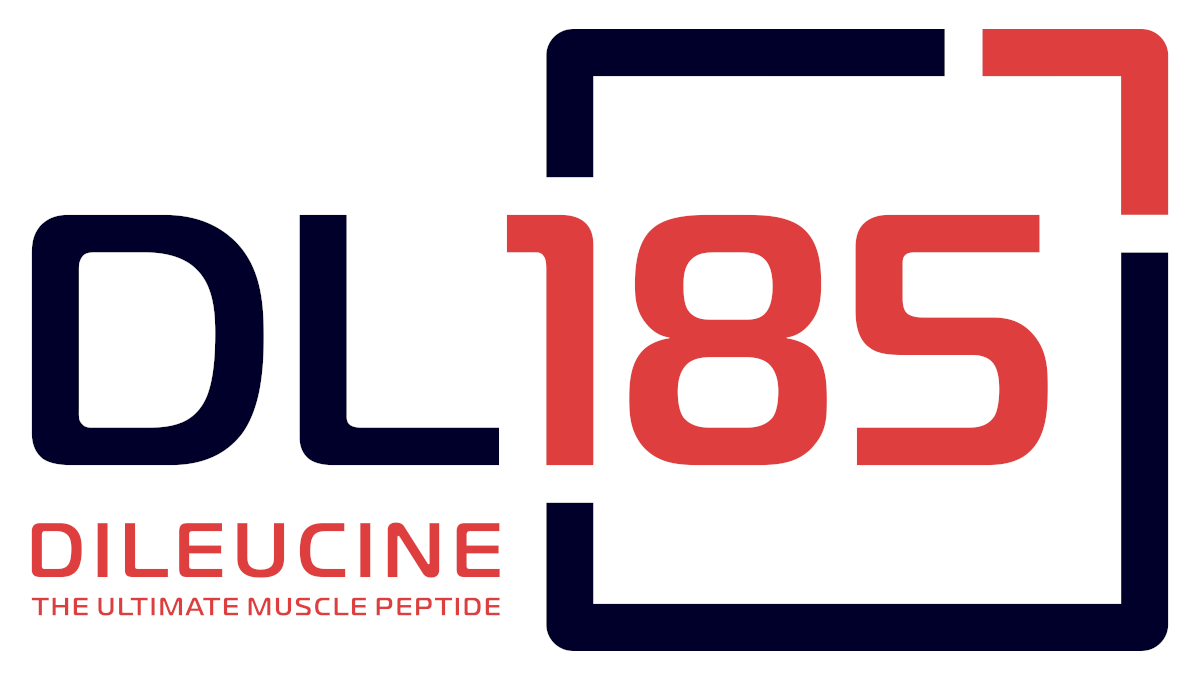
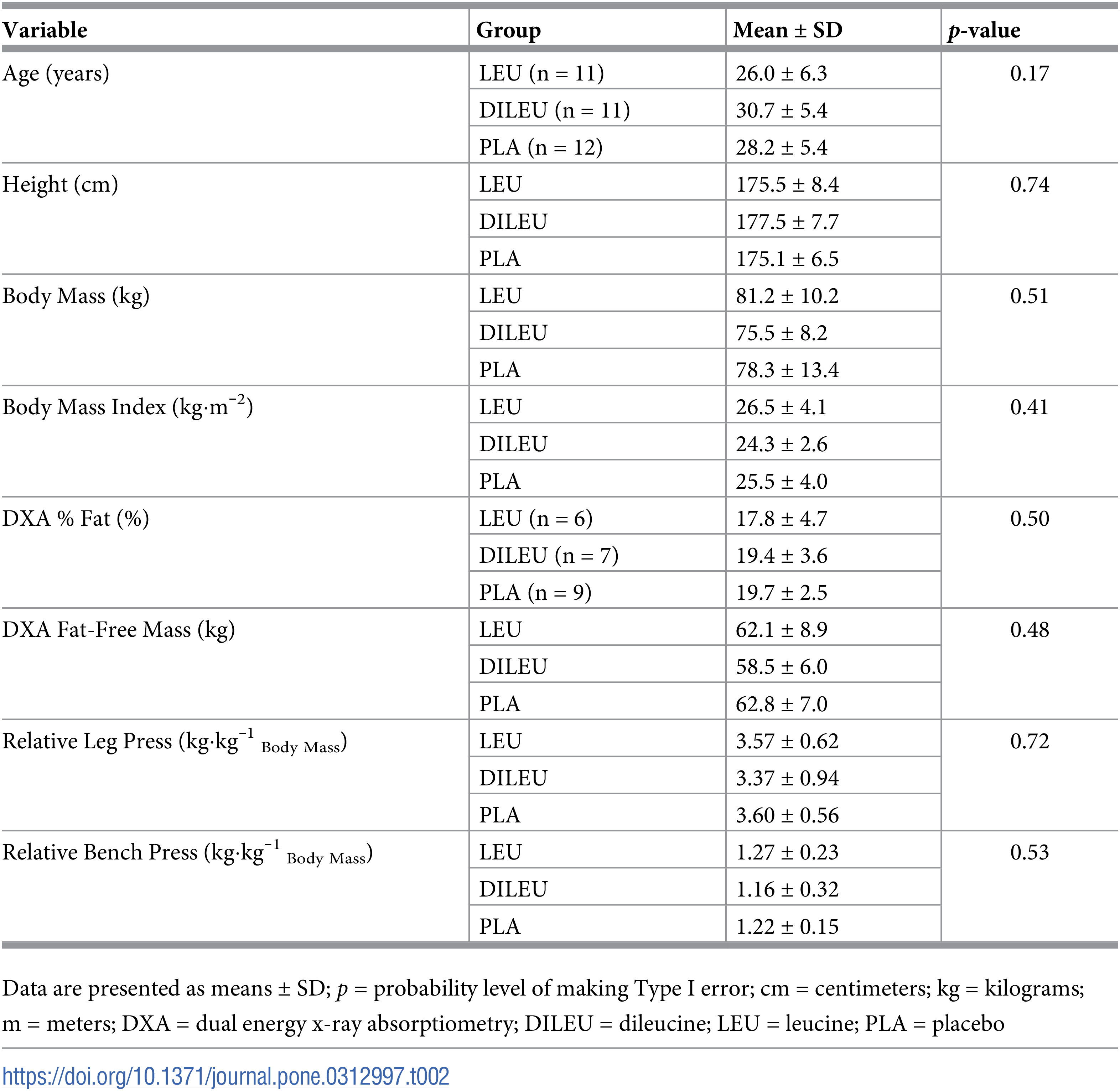
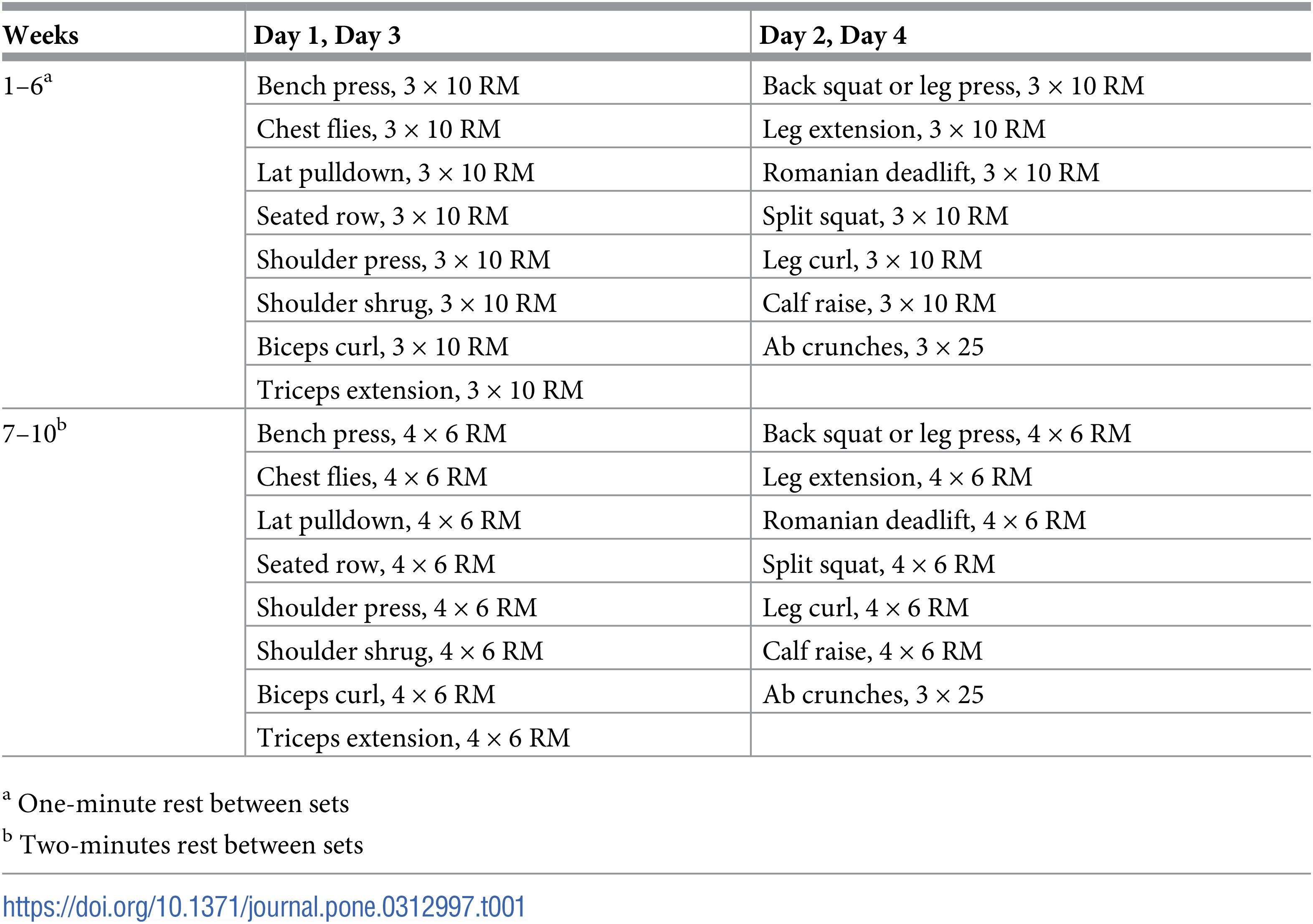

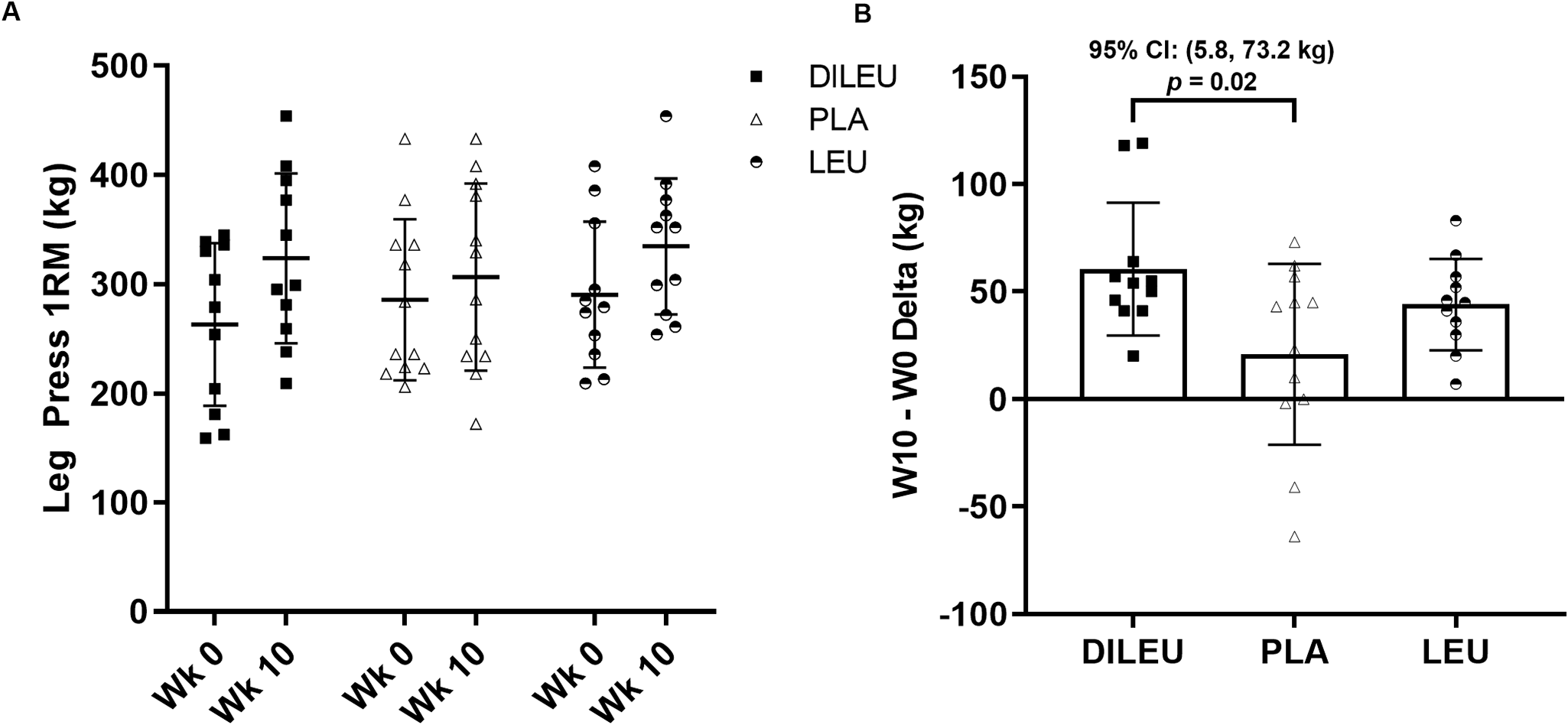
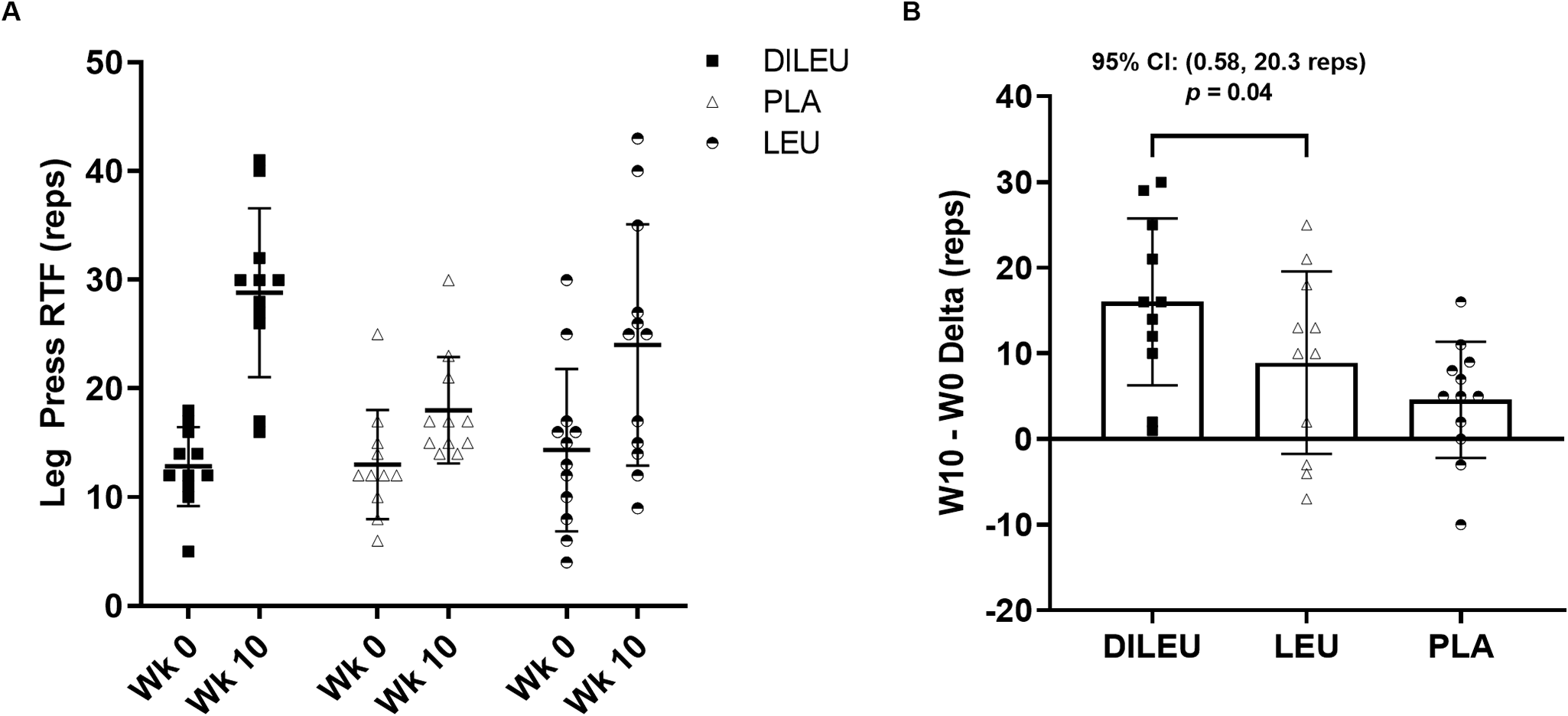

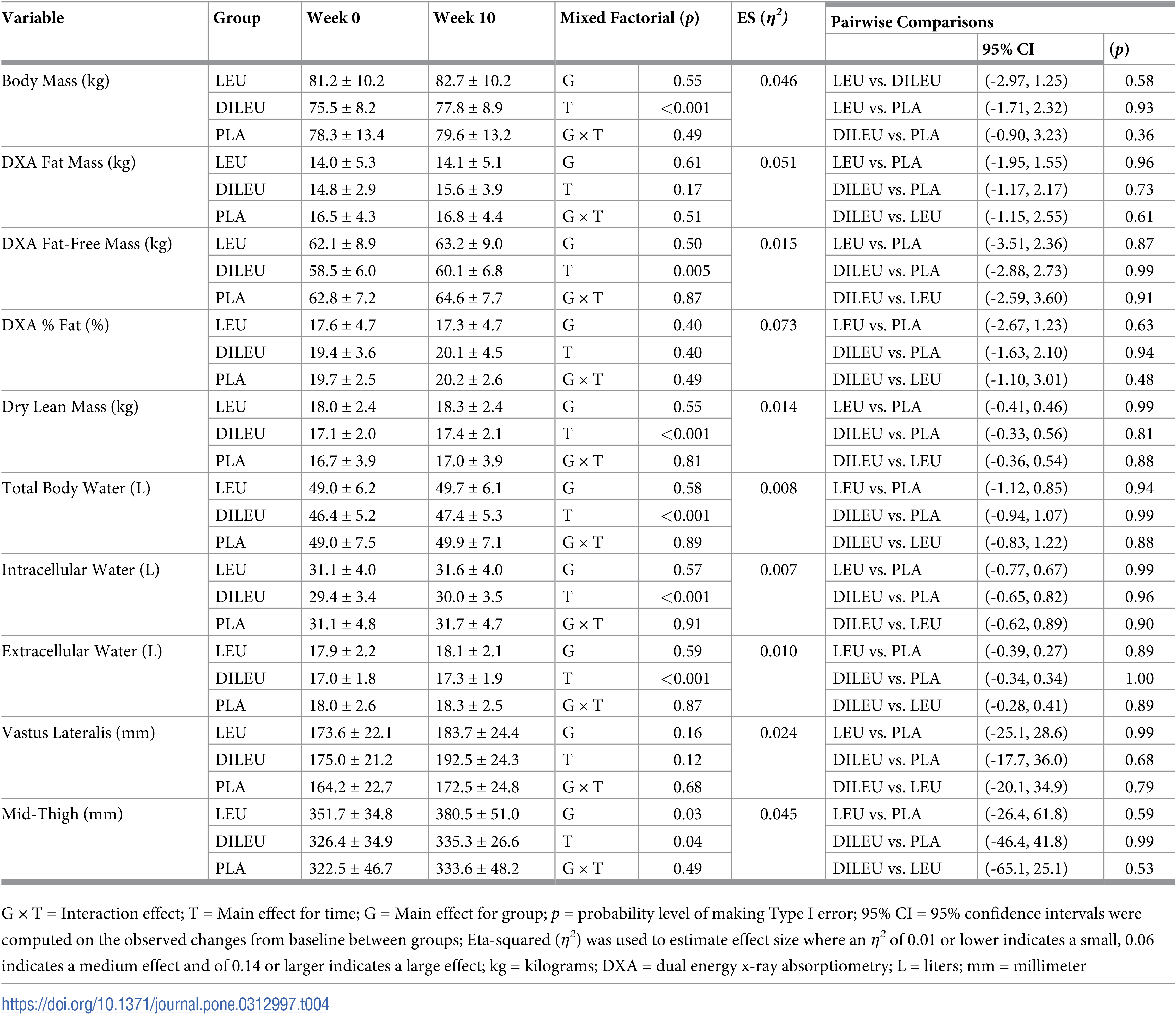

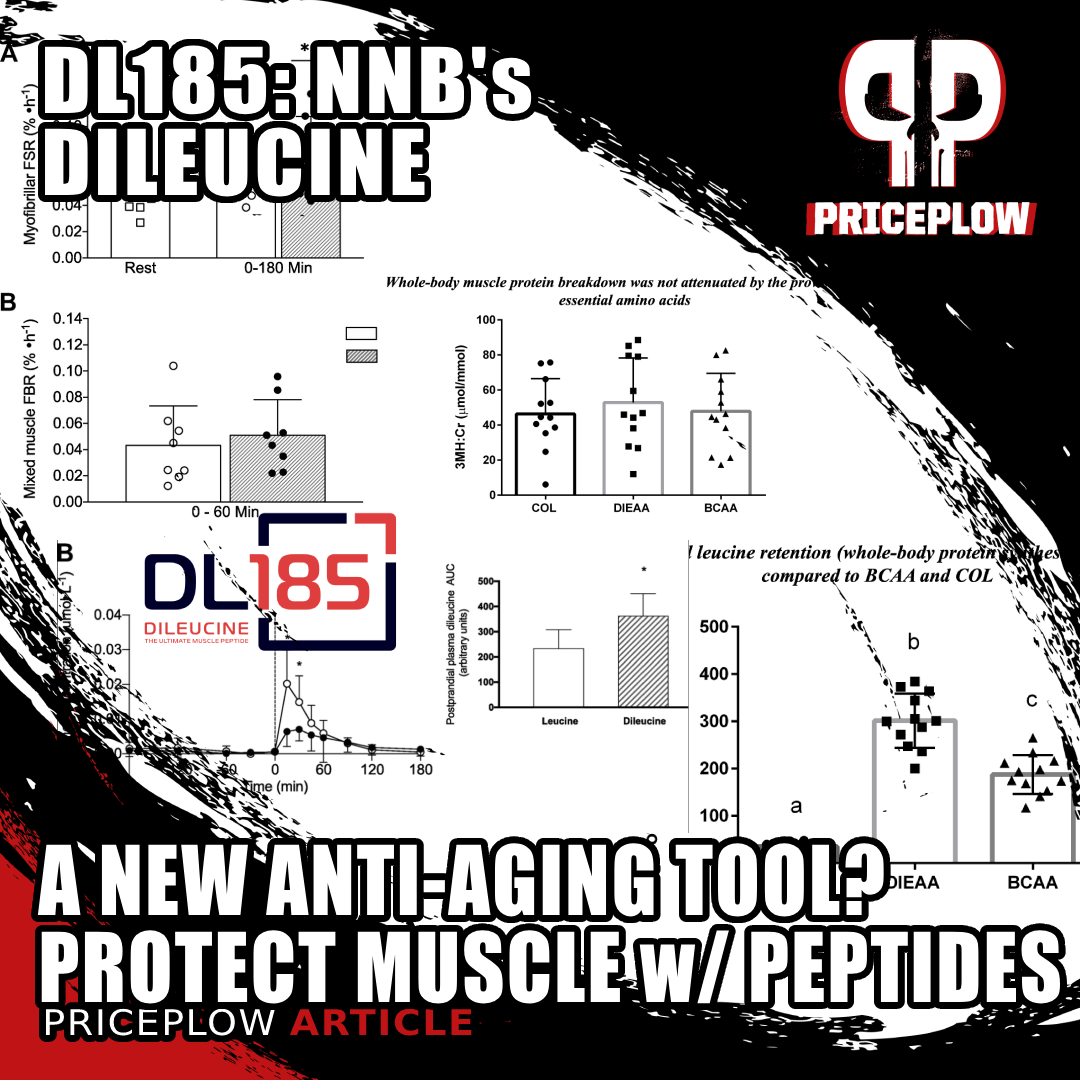
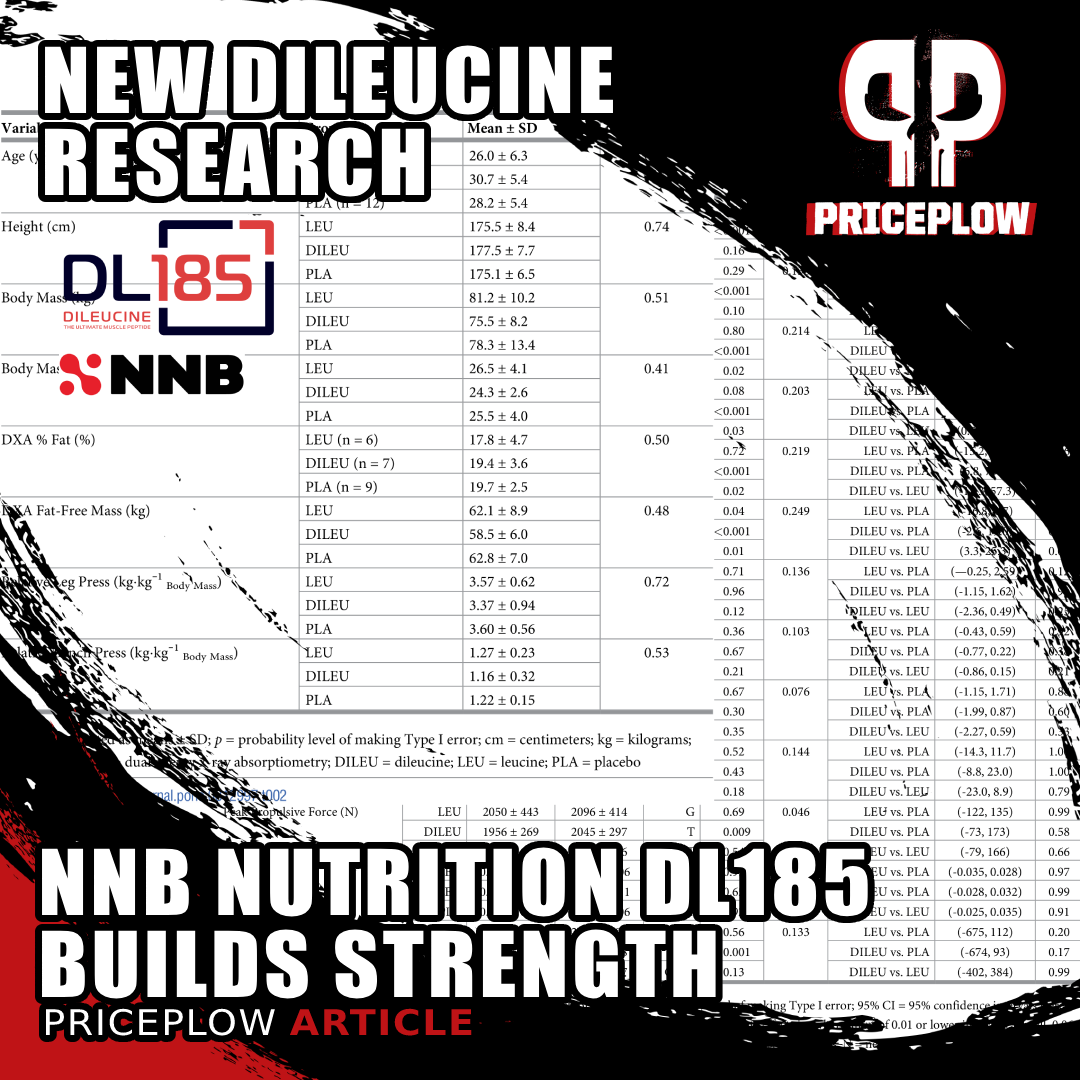




Comments and Discussion (Powered by the PricePlow Forum)